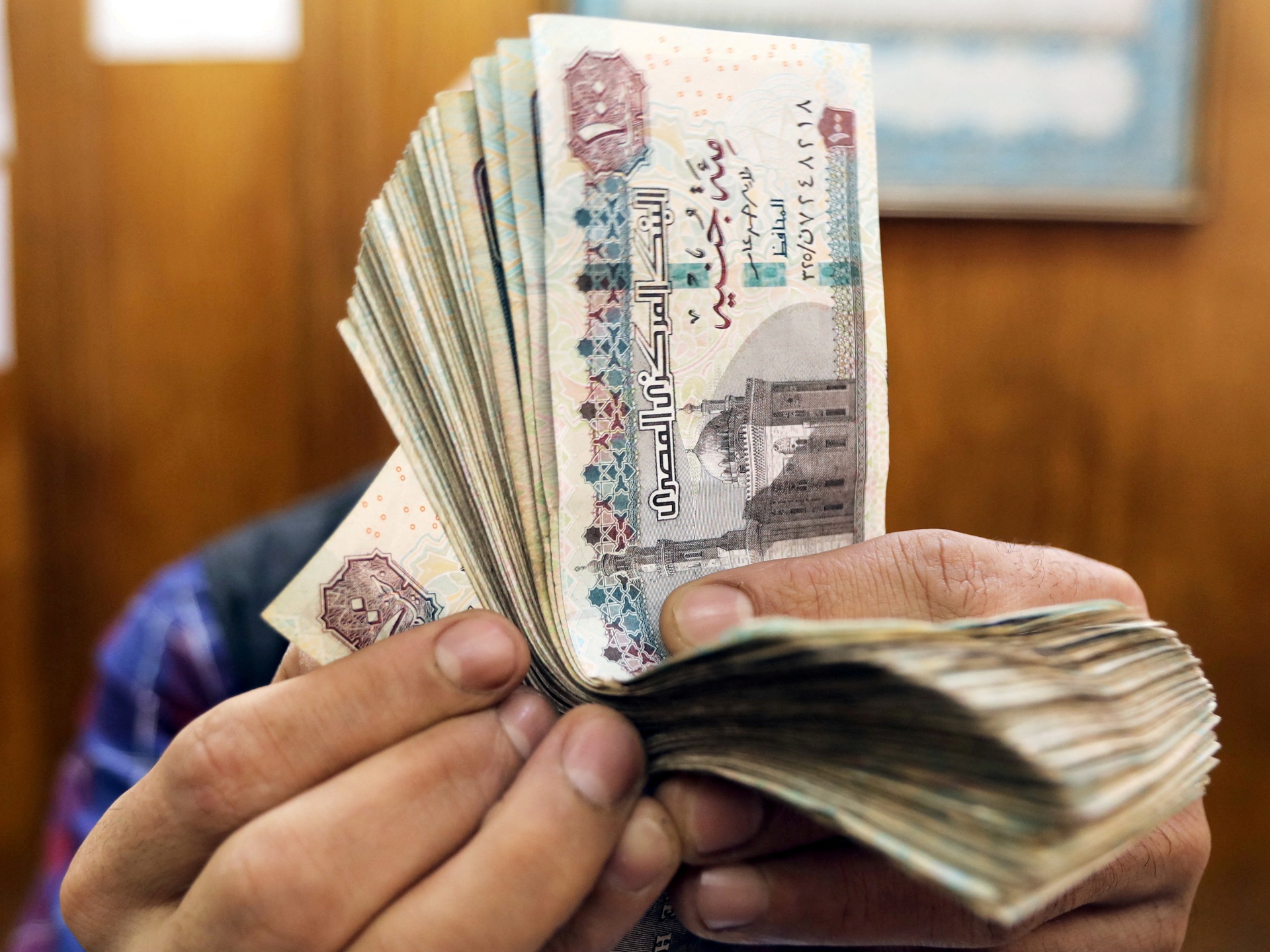Egypt’s pound weakened by more than 13 percent to a new low below 32 to the US dollar on Wednesday, losing its value by half since March as the central bank moved to a more flexible exchange rate under the terms of an International Monetary Fund (IMF) financial support package.
The devaluation, representing a drop of about 50 percent against the dollar over the 10-month period, comes as the price of imported food and other goods soars in the Arab world’s most populous country.
The currency plunged to 31.95 pounds to the dollar in state banks on Wednesday, before settling at 29.7 in the afternoon, according to the central bank.
It had been trading on Wednesday at approximately 35 pounds to the dollar on the parallel market.
Egypt’s economy was hit hard after Russia invaded Ukraine last February unsettled global investors and led them to pull billions out of the North African country.
The war sent wheat prices spiralling – heavily affecting Egypt, one of the world’s largest grain importers, and piling pressure on its foreign currency reserves.
With costs driven up further by higher global energy prices, official inflation hit 21.9 percent in December, and food prices rose 37.9 percent year-on-year, piling further hardship onto households.
In a low-income neighbourhood of central Cairo, Shaimaa al-Abed said the economic crunch has left her feeling “hopeless”.
“Even the cheapest food has doubled and tripled. What are we supposed to eat?” asked Abed, who has a four-year-old son, holding back tears.
She said she was looking for work, adding: “We were doing all right, but now we’re in the gutter.”
IMF loan
The IMF late last year approved a $3bn loan programme for Egypt, conditioned on “a permanent shift to a flexible exchange rate regime” and a “monetary policy aimed at gradually reducing inflation”.

Egypt also needs to carry out “wide-ranging structural reforms to reduce the state footprint”, the IMF said at the time, with the economy dominated by powerful state and military-led enterprises.
In a submission to the IMF published by the fund on Tuesday, the government said the central bank might occasionally step in at times of excessive exchange rate volatility, but there would be no use of banks’ net foreign assets to stabilise the currency.
The hashtag TheDollar was trending on Twitter in Arabic on Wednesday, with comments ranging from anger to fear.
Ashraf Kamal, who runs a small building supplies store in central Cairo, expressed frustration at the price fluctuations.
“Before, I knew how much my products would cost for the next eight months. But now, we sell at one price in the morning, another in the afternoon, and a third at night,” he told AFP.
‘Foreign debt tripled’
The IMF loan programme, worth $3bn across 46 months, was but a fraction of Cairo’s debt service which, in 2022-2023, alone amounted to $42bn.
Egypt has only $34bn in foreign currency reserves compared with $41bn last February, while its foreign debt has more than tripled in the past decade to $157bn.
Many banks have limited foreign currency withdrawals and increased credit card charges.
Timothy Kaldas, a policy fellow at the Tahrir Institute for Middle East Policy, warned there could be more economic pain to come.
“The inflation experienced over the past year will persist for at least another year as these shocks to the currency are absorbed,” he said on Twitter.
Prime Minister Mostafa Madbouli on Monday told ministers to cut budgets and announced a moratorium “on new projects that have a clear dollar component”.
Egypt has been dependent on bailouts in recent years, both from the IMF and from Gulf allies.
According to ratings agency Moody’s, Egypt, with a population of 104 million, is one of the five economies most at risk of defaulting on its foreign debt.
